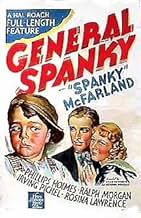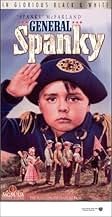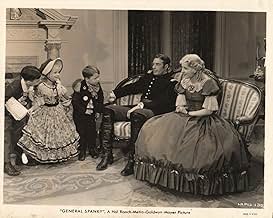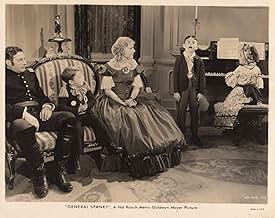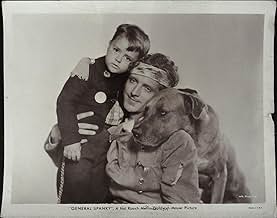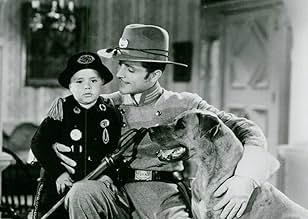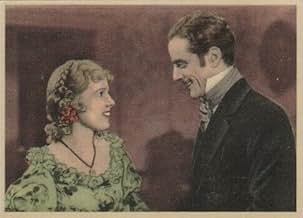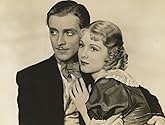A small boy is instrumental in a famous Civil War victory.A small boy is instrumental in a famous Civil War victory.A small boy is instrumental in a famous Civil War victory.
- Nominated for 1 Oscar
- 1 nomination total
George 'Spanky' McFarland
- Spanky
- (as Spanky McFarland)
Billie 'Buckwheat' Thomas
- Buckwheat
- (as Billie Thomas)
Carl 'Alfalfa' Switzer
- Alfalfa
- (as Carl Switzer)
James P. Burtis
- Boat Captain
- (as James Burtis)
Willie Best
- Henry
- (as William Best)
Ernie Alexander
- Boat Passenger
- (uncredited)
Hooper Atchley
- Slavemaster at Meeting
- (uncredited)
Harry Bernard
- Bit
- (uncredited)
John 'Uh huh' Collum
- Kid Army Member
- (uncredited)
Jack Cooper
- Bit
- (uncredited)
Al Corporal
- Man on Boat
- (uncredited)
Featured reviews
6tavm
This Hal Roach feature, General Spanky, is the one hundred fiftieth entry in the "Our Gang/Little Rasclas" series and the sixty-second talkie. It's also, as I implied in the first sentence, the only one more than two or three reels in length. It begins on a steam boat when Buckwheat is one of the slaves on board and Spanky is a shoeshine boy on it. They both end up falling in the river and-with help from a life preserver-end up on land near a Southern plantation. As Civil War gets declared, Spanky, Buckwheat, and Alfalfa form their own Army and mistakenly is mixed with a real adult one...There's more but I'll just now mention that Spanky and Buckwheat make a good team at the beginning on the boat and the plantation before Alfalfa arrives then it's mostly Spank and him on screen. Since it's Black History Month, I have to mention that many adult African-American cast members are slaves though two more, Louise Beavers and Willie Best-who during the early part of the '30s was often credited as "Sleep 'n' Eat"-play the plantation servants. There's a pretty funny scene with them involving a paint brush. The attitudes-in the movie-of the South concerning slavery is true to the period and it's that fact that makes this film a little easy to take though when Spanky forms his own military outfit, it's nice to know he allows Buckwheat to be a part of it! Also appearing is Rosina Lawrence, usually cast as the Gang's teacher, as the leading lady of the leading man, who in this case is Phillips Holmes. To tell the truth, having the Gang involved in a real-life historical setting especially one which divided the country as The War Between the States (the South's name for it) did not suit their kiddie comedy-style. When producer Hal Roach originally contracted his distributor M-G-M for an "Our Gang" feature in 1935, he wrote one for something called Crook's Incorporated which would have co-starred Charley Chase, Thelma Todd, and Patsy Kelly and sounded like a more suitable feature for those kids. Unfortunately, Ms. Todd faced a tragic end and Chase and Ms. Kelly moved to other studios...
The Our Gang series of shorts took place in more urban settings, and there were few overtly racist moments in those shorts - all the kids were playing together, in the same spaces, going in and out of the same doors, in and out of each other's homes, and no reference made to segregation or Jim Crow, etc. There was stereotyping, for sure - the black American kids, the Italian kids, the Asian kids, the fat kids, etc. But the lack of those overt racist moments is probably why these shorts have translated well enough for modern viewing.
But this full-length feature throws all that out the window: here is a story set in the South and presenting enslaved black Americans as happy, sweet simpletons, treated wonderfully by their owners. It's not "Birth of a Nation" bad - more "Song of the South" bad. There's even a conversation 10 minutes into the movie between two slave owners, bragging at how well fed and cared for their slaves are. Buckwheat, here an enslaved child, overhears the violence these owners say they would do on a re-captured runaway slave, and as he is run-away, he is terrified. It's supposed to be a funny moment - but to any halfway caring human being, knowing what really did happen to re-captured run- away slaves, the incredible violence and humiliation that was all too real, it's painful now to watch this scene, to watch this reality made light of. It would be like watching an old movie making fun of the Holocaust. Lots of other cringe-worthy moments as well, like Spanky proudly proving he's a "Southern Gentleman" to Alfalfa by showing off "his" slave, smiling happy Buckwheat.
So, why did I give it a 7? Because it is a PERFECT example of how, 70 years after the Civil War - and beyond - the myths of the happy slave, the genteel white slave owner, the "noble" and brave fighters for the Southern "cause" and the boorish, cowardly Northerners was/is perpetuated in the USA, this time with the overwhelming cuteness and charm of Spanky and Buckwheat, probably the two most popular members of the Little Rascals (they were always my favorites).
But this full-length feature throws all that out the window: here is a story set in the South and presenting enslaved black Americans as happy, sweet simpletons, treated wonderfully by their owners. It's not "Birth of a Nation" bad - more "Song of the South" bad. There's even a conversation 10 minutes into the movie between two slave owners, bragging at how well fed and cared for their slaves are. Buckwheat, here an enslaved child, overhears the violence these owners say they would do on a re-captured runaway slave, and as he is run-away, he is terrified. It's supposed to be a funny moment - but to any halfway caring human being, knowing what really did happen to re-captured run- away slaves, the incredible violence and humiliation that was all too real, it's painful now to watch this scene, to watch this reality made light of. It would be like watching an old movie making fun of the Holocaust. Lots of other cringe-worthy moments as well, like Spanky proudly proving he's a "Southern Gentleman" to Alfalfa by showing off "his" slave, smiling happy Buckwheat.
So, why did I give it a 7? Because it is a PERFECT example of how, 70 years after the Civil War - and beyond - the myths of the happy slave, the genteel white slave owner, the "noble" and brave fighters for the Southern "cause" and the boorish, cowardly Northerners was/is perpetuated in the USA, this time with the overwhelming cuteness and charm of Spanky and Buckwheat, probably the two most popular members of the Little Rascals (they were always my favorites).
This is a cute film starring Spanky, Alfalfa and Buckwheat from the "Our Gang" comedies. Set in the South during the Civil War, it may seem a little odd to see Buckwheat as Spanky's slave, but this film is as charming as the best of the shorts with the same cast. This was the only Our Gang feature film, and I highly recommend it over The Little Rascals remake from 1994.
General Spanky (1936)
** (out of 4)
By 1936 Hal Roach was attempting to shut down his short productions and making Our Gang, Charley Chase and Patsy Kelly (among others) join the feature ranks. This film attempted to put the kids on the map of features but it's also clear that it was a pet project for the top-billed George "Spanky" McFarland. In the film, a Southern gentleman (Phillips Holmes) takes in Spanky and his "slave" friend Buckwheat. Soon the children are in the fields playing war as the Civil War is breaking out and the kids end up getting mixed up with real Yankee soldiers. GENERAL SPANKY is a rather controversial movie today because of its subject matter and the way it shows slavery to be something blacks needed and wanted. I'm really not sure what the mindset was in 1936 but it's clear Hollywood really hadn't changed their ways and wouldn't for nearly another two decades so that's important to remember when watching this thing. As far as the controversy, I would never blame anyone for being offended at the idea that blacks enjoyed being slaves and we're constantly going around with smiles on their faces. What's even more disturbing in this film is some early stuff where Buckwheat loses his master and cries about it before walking around a boat hoping someone will become his new master. There are countless stereotype jokes aimed at blacks but I think the idea of a black child needing a master is probably what's not going to sit well with many. What didn't sit well with me was the poor screenplay, which really doesn't try to do anything and I do find it easy to see why Roach and his features didn't work well for anyone. I think the biggest problem is the screenplay never seems to be too worried about being funny. I thought it did a good job at showing the South just before the Civil War but the majority of the jokes just fall flat. Check out the long-winded scene where Spanky is being fed fried chicken while Buckwheat is under the table and wanting a few pieces. Spanky sends them down but the dog gets them instead of Buckwheat. This entire sequence has zero laughs because the scene is told so poorly and the timing is off so bad. Another scene that doesn't work is when the kids are playing war not knowing that the real soldiers are coming down on them. The stuff with the gunpowder I'm sure was meant to be funny but it wasn't. It's a shame the screenplay is such a mess because the performances are actually pretty good. McFarland is as cute as ever and fits his role just fine as does Billie "Buckwheat" Thomas and Carl "Alfalfa" Switzer. GENERAL SPANKY, rightfully or wrongly, will probably always be looked down upon for its subject matter but even if you can get past that you're left with a pretty bland comedy that feels overlong even at just 71-minutes.
** (out of 4)
By 1936 Hal Roach was attempting to shut down his short productions and making Our Gang, Charley Chase and Patsy Kelly (among others) join the feature ranks. This film attempted to put the kids on the map of features but it's also clear that it was a pet project for the top-billed George "Spanky" McFarland. In the film, a Southern gentleman (Phillips Holmes) takes in Spanky and his "slave" friend Buckwheat. Soon the children are in the fields playing war as the Civil War is breaking out and the kids end up getting mixed up with real Yankee soldiers. GENERAL SPANKY is a rather controversial movie today because of its subject matter and the way it shows slavery to be something blacks needed and wanted. I'm really not sure what the mindset was in 1936 but it's clear Hollywood really hadn't changed their ways and wouldn't for nearly another two decades so that's important to remember when watching this thing. As far as the controversy, I would never blame anyone for being offended at the idea that blacks enjoyed being slaves and we're constantly going around with smiles on their faces. What's even more disturbing in this film is some early stuff where Buckwheat loses his master and cries about it before walking around a boat hoping someone will become his new master. There are countless stereotype jokes aimed at blacks but I think the idea of a black child needing a master is probably what's not going to sit well with many. What didn't sit well with me was the poor screenplay, which really doesn't try to do anything and I do find it easy to see why Roach and his features didn't work well for anyone. I think the biggest problem is the screenplay never seems to be too worried about being funny. I thought it did a good job at showing the South just before the Civil War but the majority of the jokes just fall flat. Check out the long-winded scene where Spanky is being fed fried chicken while Buckwheat is under the table and wanting a few pieces. Spanky sends them down but the dog gets them instead of Buckwheat. This entire sequence has zero laughs because the scene is told so poorly and the timing is off so bad. Another scene that doesn't work is when the kids are playing war not knowing that the real soldiers are coming down on them. The stuff with the gunpowder I'm sure was meant to be funny but it wasn't. It's a shame the screenplay is such a mess because the performances are actually pretty good. McFarland is as cute as ever and fits his role just fine as does Billie "Buckwheat" Thomas and Carl "Alfalfa" Switzer. GENERAL SPANKY, rightfully or wrongly, will probably always be looked down upon for its subject matter but even if you can get past that you're left with a pretty bland comedy that feels overlong even at just 71-minutes.
During the War for Southern Independence, GENERAL SPANKY mobilizes his forces to defend the local women & children against a Yankee invasion.
In 1936, Hal Roach decided it was time for his popular OUR GANG kids to branch out into occasional feature-length films. With the big success of Shirley Temple in two Civil War period movies in 1935 (THE LITTLE COLONEL, THE LITTLEST REBEL), it was only natural that Roach would look in that same direction for his GANG. Although given a rather lavish production and distributed by MGM, GENERAL SPANKY was not a critical or box-office success. The little GANGsters would henceforth stick to short subjects.
Although he's given top billing & the title role, George Spanky' McFarland is rivaled throughout the film's first half by little Billie Buckwheat' Thomas. Here were two of the finest young actors to ever appear in American movies. With all the experience of old, seasoned pros, these two gamin could steal scenes & hearts with equal bravado. A constant joy, without a false note between them, they provide the essential reason for watching the film today.
Phillips Holmes gives a quiet, gentlemanly performance as Spanky's adult protector. Nearly forgotten now, Holmes was a fine actor who died much too soon, during World War Two. Genial Ralph Morgan is especially good as a sympathetic Union general - his scenes with Spanky are quite amusing.
Other OUR GANGers appear midpoint into the movie, most notably Carl Alfalfa' Switzer; he gets to warble Just Before The Battle, Mother.' Even pretty Rosina Lawrence (the GANG's schoolmarm) shows up to play Holmes' beloved.
Irving Pichel is particularly slimy as a cowardly cardsharp turned vindictive Yankee captain. Bumbling Willie Best & feisty Louise Beavers play Miss Lawrence's slaves.
It should be noted that there is racism in the film, not unusual for Hollywood of that era - but almost completely missing in the original series of OUR GANG shorts.
Fans of 19th Century music will enjoy paying attention to the soundtrack, which is a long succession of ancient tunes.
In 1936, Hal Roach decided it was time for his popular OUR GANG kids to branch out into occasional feature-length films. With the big success of Shirley Temple in two Civil War period movies in 1935 (THE LITTLE COLONEL, THE LITTLEST REBEL), it was only natural that Roach would look in that same direction for his GANG. Although given a rather lavish production and distributed by MGM, GENERAL SPANKY was not a critical or box-office success. The little GANGsters would henceforth stick to short subjects.
Although he's given top billing & the title role, George Spanky' McFarland is rivaled throughout the film's first half by little Billie Buckwheat' Thomas. Here were two of the finest young actors to ever appear in American movies. With all the experience of old, seasoned pros, these two gamin could steal scenes & hearts with equal bravado. A constant joy, without a false note between them, they provide the essential reason for watching the film today.
Phillips Holmes gives a quiet, gentlemanly performance as Spanky's adult protector. Nearly forgotten now, Holmes was a fine actor who died much too soon, during World War Two. Genial Ralph Morgan is especially good as a sympathetic Union general - his scenes with Spanky are quite amusing.
Other OUR GANGers appear midpoint into the movie, most notably Carl Alfalfa' Switzer; he gets to warble Just Before The Battle, Mother.' Even pretty Rosina Lawrence (the GANG's schoolmarm) shows up to play Holmes' beloved.
Irving Pichel is particularly slimy as a cowardly cardsharp turned vindictive Yankee captain. Bumbling Willie Best & feisty Louise Beavers play Miss Lawrence's slaves.
It should be noted that there is racism in the film, not unusual for Hollywood of that era - but almost completely missing in the original series of OUR GANG shorts.
Fans of 19th Century music will enjoy paying attention to the soundtrack, which is a long succession of ancient tunes.
Did you know
- TriviaThe initials of R. P. W. C. R. C. W. M. R. (Spanky's Confederate Army) stands for "The Royal Protection of Women and Children, Regiment Club of the World and Mississippi River".
- Quotes
Spanky Leonard: I'm not no Yankee! I'm a Southern gentleman!
Alfalfa: How ya gonna prove it?
Spanky Leonard: Well, I've gotta slave!
Alfalfa: Oh, you have not.
Spanky Leonard: Tell him who you are?
Buckwheat: I his slave.
- ConnectionsEdited from La révolte des esclaves (1930)
- SoundtracksEzekiel's Wheel
(uncredited)
Traditional
Details
- Runtime
- 1h 11m(71 min)
- Color
- Aspect ratio
- 1.37 : 1
Contribute to this page
Suggest an edit or add missing content

